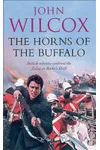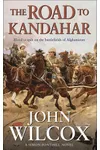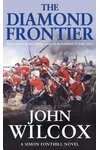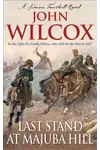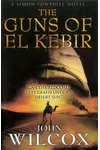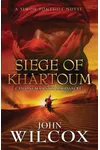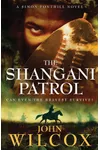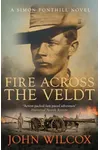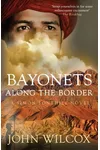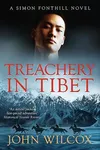Step into the swashbuckling world of Simon Fonthill, where courage, cunning, and colonial conflicts collide in John Wilcox’s gripping historical fiction series! Set against the backdrop of the British Empire’s late 19th-century wars, this series follows Lieutenant Simon Fonthill, a young officer determined to shed a false label of cowardice and prove his mettle in battles from the Zulu Wars to the Afghan frontier. With vivid historical detail and heart-pounding action, Wilcox crafts a saga that’s as thrilling as it is illuminating.
For fans of Bernard Cornwell’s Sharpe or C.S. Forester’s Hornblower, Simon Fonthill offers a fresh take on the military adventure genre, blending personal drama with the chaos of Britain’s colonial campaigns. Whether you’re a history buff or just love a good underdog story, Fonthill’s journey will keep you turning pages late into the night.
How Simon Fonthill Began
John Wilcox, a former journalist turned novelist, launched the Simon Fonthill series in 2004 with The Horns of the Buffalo. Inspired by his fascination with Victorian military history and lesser-known colonial conflicts, Wilcox wanted to create a hero who wasn’t a stereotypical swashbuckler. Simon Fonthill starts as a doubted, introspective officer, grappling with self-doubt and a tarnished reputation. Wilcox’s background in journalism brought authenticity to the series, with meticulously researched settings and real historical figures woven into Fonthill’s fictional exploits. His goal? To shine a light on overlooked battles while crafting a character-driven adventure.
The Heart of Simon Fonthill
The series kicks off with The Horns of the Buffalo (2004), where Lieutenant Simon Fonthill arrives in South Africa in 1879, tasked with infiltrating Zulu territory to uncover the king’s plans. Facing imprisonment and the brutal Battle of Isandlwana, Fonthill’s courage is tested as he races to warn the garrison at Rorke’s Drift. In The Road to Kandahar (2005), Fonthill, now a captain, ventures to the Afghan frontier, spying on warlike Pathan tribes in a mission fraught with betrayal and danger. The Diamond Frontier (2006) sees him back in South Africa, entangled in diamond-fueled greed and clashes with the bePedi tribe. Later, The Siege of Khartoum (2009) pits Fonthill against Dervish warriors in Sudan, racing to reach General Gordon.
The series’ strength lies in its themes of redemption, loyalty, and the moral complexities of imperialism. Fonthill, often accompanied by his loyal servant ‘352’ Jenkins, evolves from a reluctant soldier to a seasoned adventurer, questioning the empire’s motives while fighting for survival. Wilcox’s prose is fast-paced yet rich, painting vivid pictures of dusty battlefields and exotic locales. The settings—Zululand, Afghanistan, Sudan—are as much characters as Fonthill himself, grounding the series in historical authenticity while delivering high-stakes drama.
Why Simon Fonthill Resonates
The Simon Fonthill series has carved a niche among historical fiction fans for its blend of action and introspection. Readers praise Wilcox’s ability to humanize history, making obscure conflicts like the Shangani Patrol or the bePedi campaigns accessible and thrilling. Fonthill’s growth from a maligned officer to a respected hero mirrors the classic hero’s journey, resonating with anyone who’s faced doubt or adversity. While not as famous as Sharpe, the series has a loyal following, with fans on Goodreads and Amazon lauding its well-researched plots and likable characters, particularly the banter between Fonthill and Jenkins. Its focus on lesser-known wars offers a fresh perspective, making it a hidden gem in the genre.
- First Book: The Horns of the Buffalo (2004)
- Total Books: 14, ending with Dust Clouds of War (2015)
- Setting: British colonial conflicts, 1879–1914
- Author: John Wilcox, former journalist
Grab The Horns of the Buffalo and dive into Simon Fonthill’s world of daring missions and historical intrigue! Whether you’re dodging Zulu spears or navigating Afghan treachery, this series promises an adventure you won’t forget.
